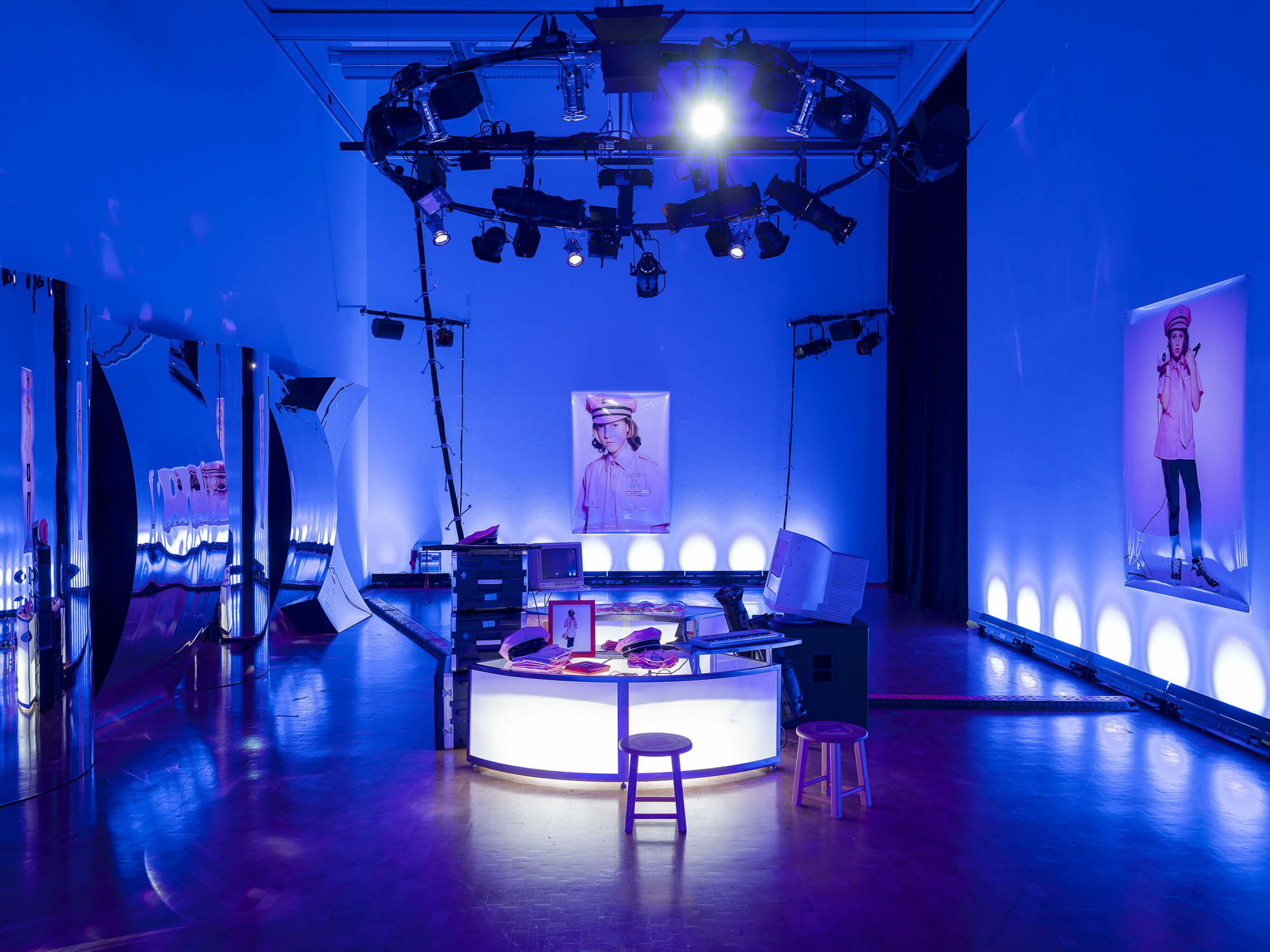YYYYMMDD >>> BACK HOME <<< >>> SELECTED FEATURES <<< >>> HIDDEN ARCHIVE <<<
[20230904]
MAXIMUM SECURITY SOCIETY by JULIA SCHER at MUSEUM ABTEIBERG curated by SUSANNE TITZ and GIAN MARCO HÖLK [from 20230326 to 20230820]
[Photos: Cedric Mussano / Achim Kukulies / Andrea Rossetti]



























Julia Scher recognized the power of digital media early on. Her investigations into private and public surveillance systems began in the late 1980s, long before the emergence of popular formats like Big Brother or films like The Truman Show. They also proved deeply prescient, anticipating the trajectory of a contemporary society in which constant collection of personal data has become the norm.
In the 1990s, Scher continued her exploration of observation apparatuses by installing camera and audio surveillance systems in art spaces. These installations sought to illus-trate the mechanisms of control, power, manipulation, and even reassurance that these technologies possess. Live feeds, the artist’s own voice emanating from audio systems, electro-aesthetics, and the involvement of institutional security personnel converged in situations that led viewers to believe they were being watched and controlled.
Scher’s spaces are at once “seeing” and seer-like: live observation situations that employ technologies ranging from early digital control systems with cameras and monitors to the complex data tapping and listening mechanisms in smartphones, Siri, or Alexa. Her often erotic or comically over-the-top content depicts “surveillance and punishment” (as Michel Foucault termed it), the clash between desire and control in the reality of what sociologist Gary T. Marx describes as the “Maximum Security Society”: a society that rel-ishes these technologies while simultaneously tolerating and accepting a loss of control and the commodification of personal data.
On view at Museum Abteiberg is a survey of Scher’s oeuvre from its beginnings in paint-ing, sculpture, and photography in the mid-1970s, when she was already grappling with the issues of medialization and increasing digitalization of the present, through the point where she discovered the potential of using the technologies themselves. Her multimedia practice includes installation, video and audio, performance, projects in artist-run spaces, on the Internet, and consumer products sold under the brand Security By Julia. Some of her work has evolved over time, incorporating new technologies while retaining the ‘DNA’ of the core concept. Other pieces are entirely new, forging connec-tions to a digital world once thought to be the stuff of science fiction.
Many realms of Scher’s activity are only partially represented in this exhibition. This show does not fully capture, for example, the club scene of the 1990s, the activist groups she continues to be involved with today, or the early years of the Internet as a global communicative, creative, and democratic space. Nor does it fully encompass the context of the art spaces of museums, art associations, and galleries of the time, where Scher’s spatial installations often provoked direct confrontations with the public. Visitors were recorded, documented, and sometimes even entered their own names into a digital system without understanding where their data was being sent.
The exhibition Maximum Security Society is structured by Scher’s so-called Gates. The black numbers on walls and columns, inspired by the terminal numbers at airports where they stand for order and transit, are used throughout the exhibition and, analo-gously, in the accompanying booklet.
Julia Scher: Maximum Security Society, organized in cooperation with Kunsthalle Zürich, is a major retrospective of the work of Julia Scher. Born in 1954 in Hollywood, California, Scher has lived in Cologne since 2006. The exhibition presents a selection of works from all of Scher’s creative phases, including many addressing the surveillance structures inherent in the museum as an institution.
[Text: Susanne Titz and Gian Marco Hölk]
©YYYYMMDD All content and design by Daniela Grabosch + Ricardo Almeida Roque unless otherwise stated. Images, Videos and Texts can only be used under permission of the author(s).